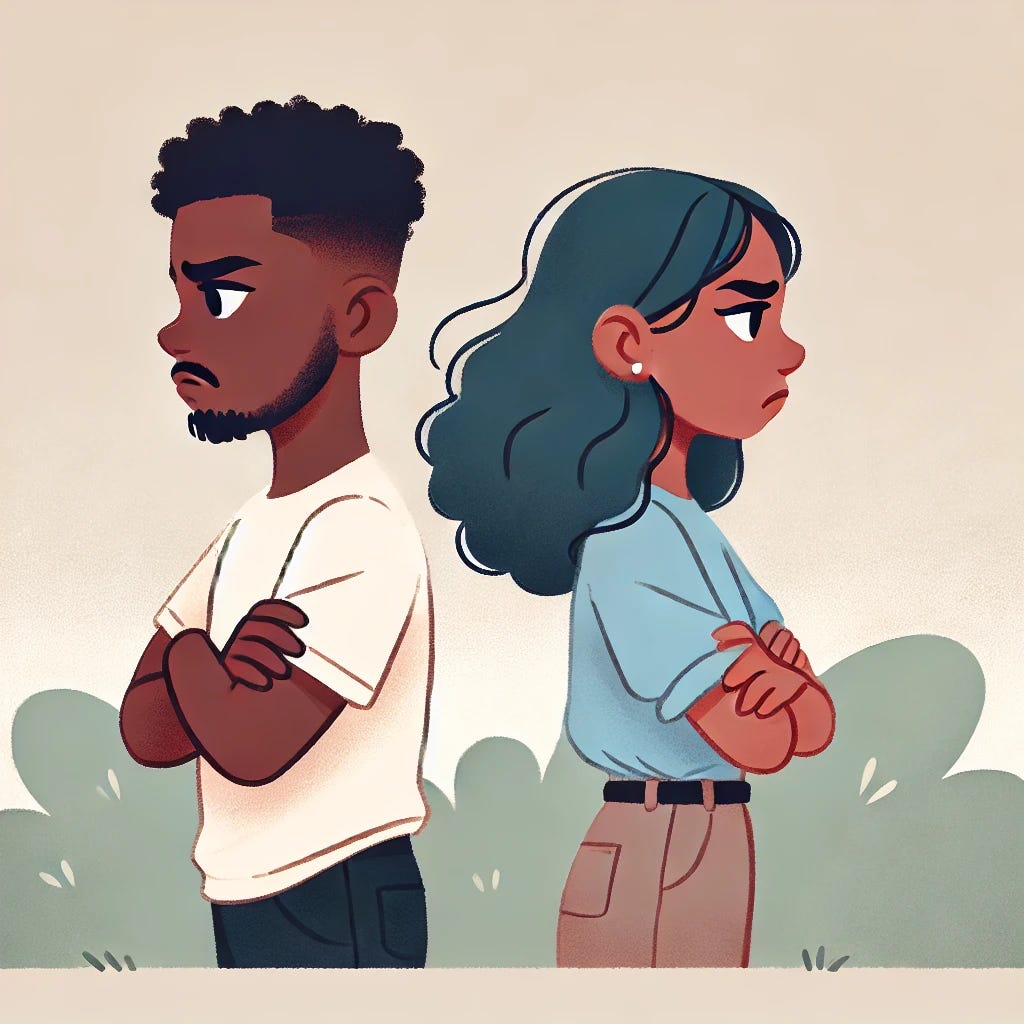Have you ever pulled away from someone you care about after a misunderstanding or conflict? This is emotional withdrawal. Emotional withdrawal can feel like a shield against further pain, but it often complicates relationships even more.
For ADHD people (and others), this reaction often stems from Rejection Sensitivity Dysphoria (RSD)—an intense, overwhelming response to perceived disapproval or failure.
Let’s explore why this happens and how you can navigate these challenges with understanding and self-compassion.
The Tug-of-War Between Fear and Connection
When RSD strikes, it’s like an alarm goes off in your brain:
They don’t want me around. I’ve messed this up. They’re upset because of me. They’re going to leave.
These thoughts spiral quickly, leading you to protect yourself by withdrawing.
This might look like:
Retreating inward
Minimizing communication
Shutting out loved ones
While these actions may feel safer at the moment, they often send unintended signals. The other person might interpret emotional withdrawal as disinterest or detachment, especially if they don’t realize what triggered your reaction.
This misunderstanding can create tension, leaving the other person confused or hurt. They may also withdraw in protection and reject you, which will likely deepen your feelings of perceived rejection. It’s a cycle that can quickly spiral unless both sides gain clarity and understanding.
When RSD Hits Pause, Signal, Reset
Pause and Breathe
When emotions feel overwhelming, take a moment to pause. Remind yourself: This might be my brain reacting, not the whole story. Breathe deeply to help calm your nervous system and create space to process.
Use a Safe Word
Choose a word with your partner or loved one that signals you need space; any word will do. This small step can help prevent spiraling thoughts and reduce misunderstandings.
Breaking the Cycle
Start with Self-Compassion
Your shame and rejection sensitivity are protective responses shaped by past experiences. Instead of criticizing yourself, remind yourself: I’m doing my best.Name Your Feelings
When emotions feel overwhelming, pause and name them. For example, That feeling of fear or shame is happening again. This small act can help you regain a sense of control and clarity.Ask for Space Instead
Instead of withdrawing without explanation, try sharing your need for space. A simple phrase like, “I’m feeling overwhelmed and need some time to process. Can we talk later?” can prevent misunderstandings and keep the connection intact.Reflect to Grow
After a challenging interaction, take time to reflect. What triggered your reaction? How did you respond? What might you do differently next time?Take the Time You Need to Feel Regulated
Before revisiting the situation, give yourself the time to calm your nervous system. This might mean taking a walk, journaling, or simply sitting quietly.Practice Reconnection and Communication
When you feel ready, revisit the situation with the other person. Talk openly about what happened, how you felt, and what you need moving forward. Reconnection can strengthen your relationship and help repair misunderstandings.
Healing Relationships, One Step at a Time
What’s one small step you can take today to show yourself kindness and help yourself with RSD?
NOTE: This strategy only applies to healthy, safe relationships with a nonabusive partner or person.
If you like Flourish, share it.
If you like this post, share it.
Thanks for reading today’s issue.
Remember to celebrate the small victories—they matter.
Kristen McClure MSW, LCSW






I usually say to my husband, “I am not ready to talk about this yet, give me some time to myself first.” I usually just sit quietly in our bedroom and he stays in the front of the house. Sometimes I can come back in a few minutes, but other times it takes me a while to process and I am not ready to talk yet even though I come back to the room.
I have improved at receiving constructive criticism from bosses or colleagues, but it’s still incredibly difficult for me to hear any negative comments from my husband- I take everything way worse from him specifically. My sister could say the same exact thing and I would agree with her and feel fine, but if he were to say it I would feel hurt.
I admit it doesn’t make sense!